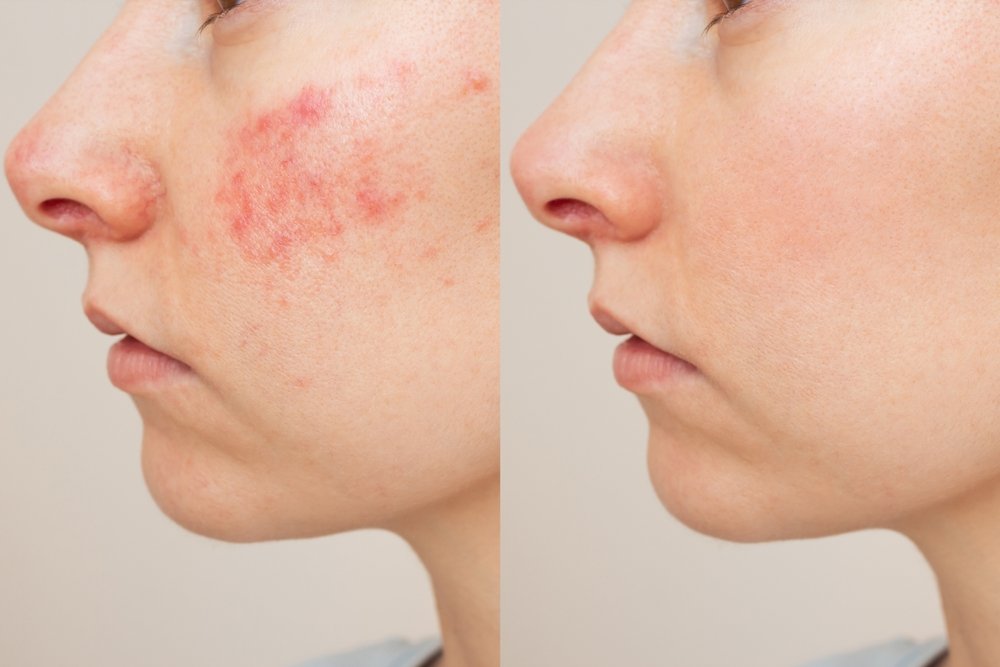What Can I Do About Rosacea?
If you are diagnosed with rosacea, treatment options vary based on your subtype (covered in Part 1 of our series).
Gentle Skincare
Skincare should be gentle to avoid promoting inflammation:
Use fragrance-free products with fewer ingredients.
Avoid toners or abrasive scrubs, and instead use gentle face wash and moisturizer, such as those made by Cetaphil or CeraVe.
Wash with your fingertips, rather than a washcloth, and pat dry gently.
Protect your skin from sun exposure by wearing hats and using a daily moisturizer and sunscreen SPF30 or higher, such as Elta UV Clear.
Green-tinted makeup can be helpful in masking redness.
Prescription Medications
Prescription medications to treat rosacea include topical preparations (creams) and oral medications (pills):
Topical options: FDA-approved topical medications to treat rosacea include metronidazole, ivermectin, sodium sulfacetamide with sulfur, and azelaic acid. These medications work well to treat the papulopustular variant of rosacea. Brimonidine and oxymetazoline are FDA-approved to treat the redness associated with rosacea, although their effect is temporary, and rebound redness has been reported. Unfortunately, many insurance companies do not cover all of these prescriptions.
Oral medications: Oral antibiotics and isotretinoin can be used in moderate to severe rosacea flares.
Cosmetic Treatment Options
These are a couple of the cosmetic treatment options available. Ask your dermatologist if these or any others are right for you:
The redness of rosacea can be treated with a pulsed-dye laser that targets blood vessels.
Surgical sculpting of the nose can be performed for rhinophymatous rosacea.
Ocular Rosacea
If you have ocular rosacea, eyelid hygiene is important.
Washing with diluted baby shampoo can be helpful.
Artificial tears may help to relieve ocular irritation.
For more significant cases, referral to an ophthalmologist may be necessary.
If you have rosacea symptoms and would like to discuss the best treatment options for you, consult one of our board-certified dermatologists.
Any questions? Please contact SSDP to schedule an appointment with any of our physicians.
References:
Bolognia, Jean, L. et al. Dermatology. Available from: Elsevier eBooks+, (4th Edition). Elsevier - OHCE, 2017.


